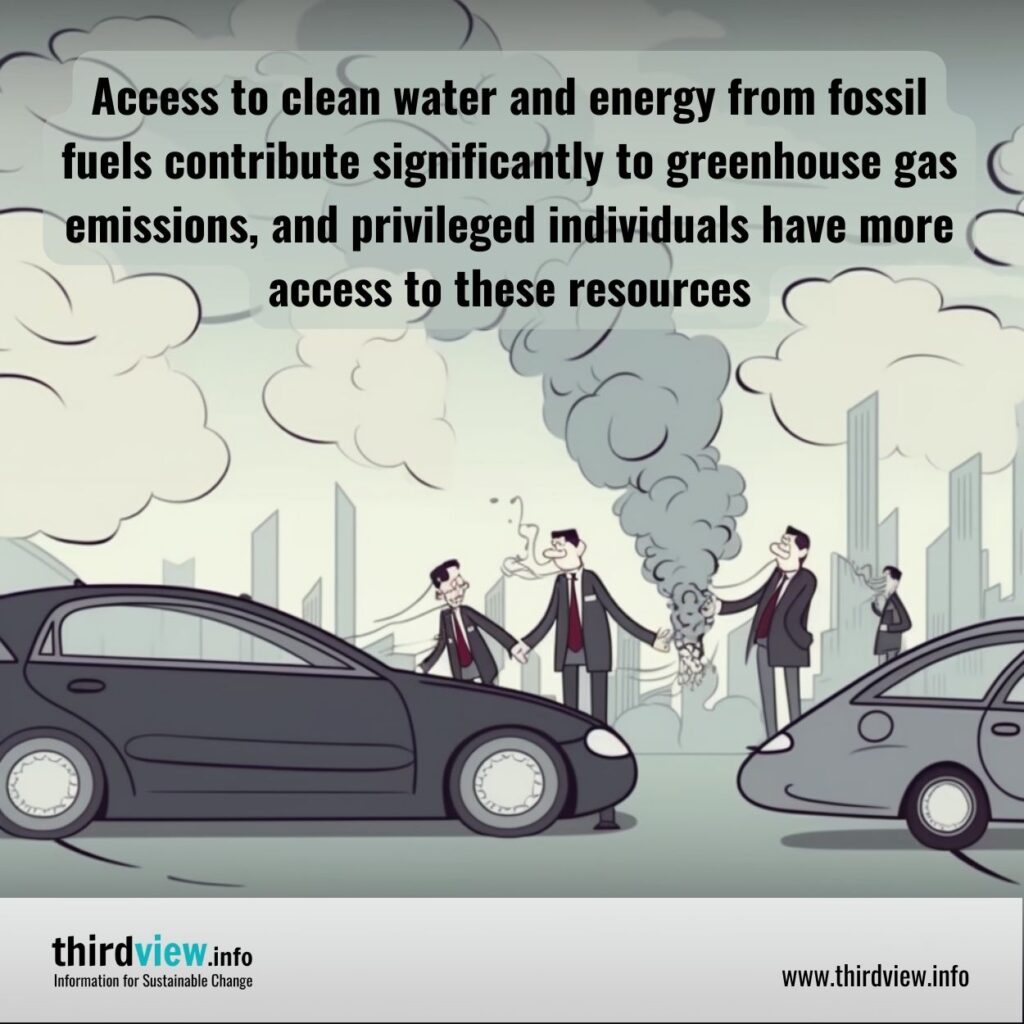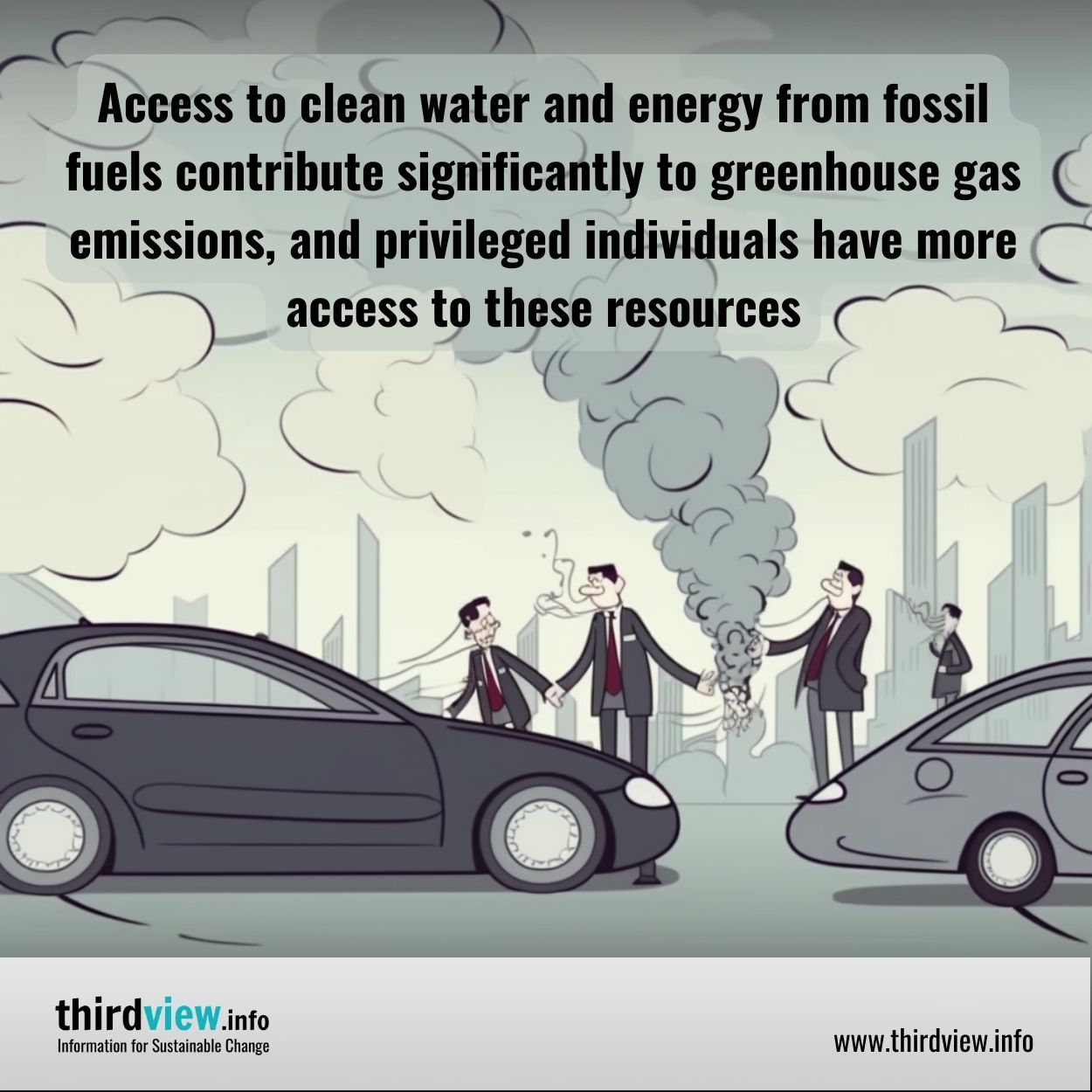The climate crisis is a reality that affects every person on this planet—no matter their race, class, or gender. Yet, we cannot ignore the fact that privileged people play an outsized role in creating and exacerbating this global crisis. In order to make any real progress in tackling climate change, privileged people must take responsibility for their actions and work to reduce their environmental footprints.
The Problem of Privilege
Privilege is defined as “a special right, advantage, or immunity granted or available only to a particular person or group.” It is commonly understood to be based upon factors such as wealth, race, gender identity, sexuality, and social standing—all of which are used to differentiate those with power from those without it. We see privilege playing out in many aspects of our lives; however, when it comes to the climate crisis specifically, privilege has a direct impact on how much damage people can cause to the environment by virtue of how much money they have and what resources are available to them.
The Impact of Privileged People on the Climate Crisis
Privileged people have more access than others to resources like clean water and energy that use fossil fuels—both of which contribute significantly to greenhouse gas emissions. As such, these privileged individuals create more pollution than those with less access do—and yet there are fewer consequences for them due to their status as “privileged” citizens. Additionally, due to their economic power, privileged people also have greater abilities than others do when it comes to influencing government policies related to climate change. This means they can push for measures that help protect the environment while simultaneously benefiting themselves financially through incentives like tax breaks or subsidies.
How Privileged People Can Make a Difference
In order for us all to make meaningful progress towards beating the climate crisis together—privileged people must take action too! Here are some ways privileged people can help fight against global warming:
- Reduce your consumption: Start by reducing your consumption of products that generate high levels of emissions (e.g., electric cars). Cutting back on these items can help reduce your own environmental footprint while ensuring you don’t contribute further towards creating more pollution in the world.
- Advocate for green policies: Use your economic and social power as a privileged individual to advocate for policies that will protect our environment from further damage caused by pollution and global warming (e.g., carbon taxes). By doing so you can send a message that protecting our planet should be everyone’s priority regardless of one’s economic status or background.
- Educate yourself and others: Take time out of your day-to-day life to educate yourself about global warming and its effects on our planet so that you know what steps need to be taken in order for us all beat this issue together! Then share this knowledge with others so that they too understand why taking action now is imperative if we want future generations to have access to clean air and water.
It is clear that privileged individuals play an important role in contributing towards both creating and exacerbating climate crises around the world today due to their disproportionate access to resources and influence over government policy decisions related to ecology/environmental protection efforts. However–with great power comes great responsibility–so now it is up to us all–privileged or not–to work together to combat this urgent problem before it is too late. By reducing consumption levels and advocating green policies alongside educating ourselves and others–we can start making meaningful progress towards combating global warming once and for all.


